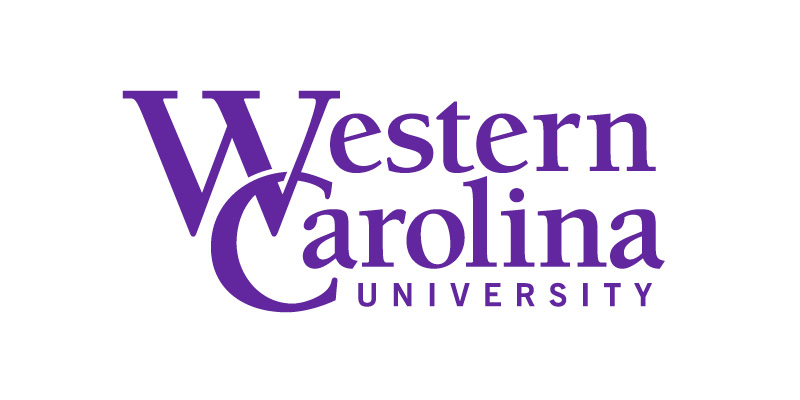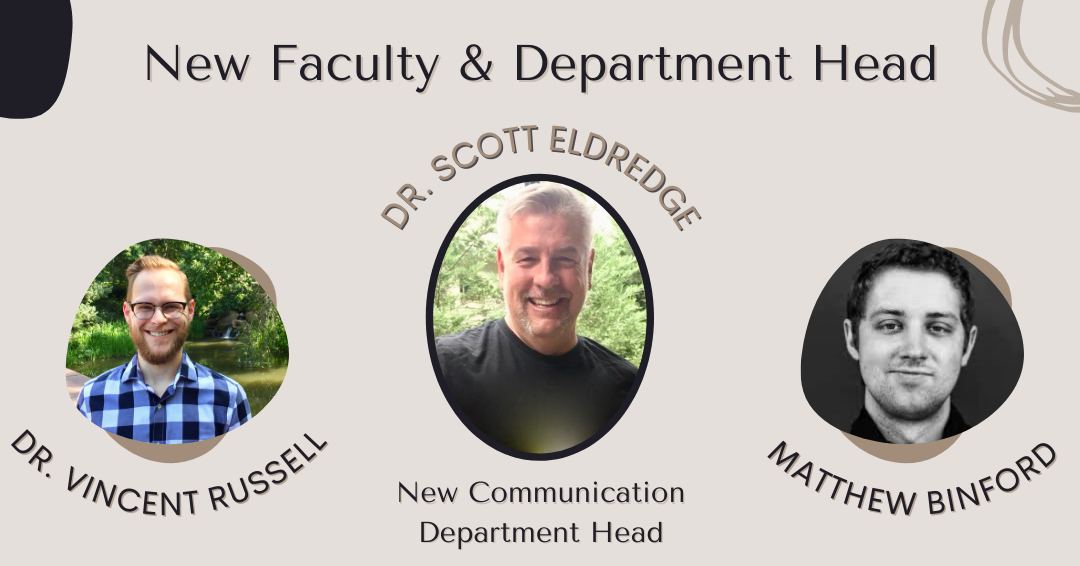The Communication Department at Western Carolina University made some faculty changes and additions to prepare for the new academic year.
Matthew T. Binford and Charles Vincent Russell joined the Communication Department as Assistant Professor of Practice and Assistant Professor, respectively.
Within the department, Dr. Katerina Spasovska has shifted out of the Department Head role and into an Associate Professor of Communication position. Spasovska was the department head for three years, from July 2018 to June 2021.
Similarly, Dr. Scott Eldredge transitioned from Associate Professor of Communication into the current Communication Department Head over the summer.
Department Heads in the College of Arts and Sciences are elected by their respective departments and approved by the Dean for three-year teams. After three years, Department Heads may return to their faculty position or run for a second three-year term.
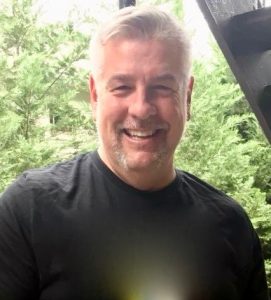
Dr. Scott Eldredge, Communication Department Head
After six years, Department Heads must step down, and the department faculty must elect a new Department Head from among the tenured faculty in the department.
As the new department head, Eldredge wants communication students to leave Western with the skills and experiences to succeed and make a difference in the world. He said, “I want them to have lots of opportunities to produce all kinds of communication projects: video and audio production, digital media, writing, creative, etc.”
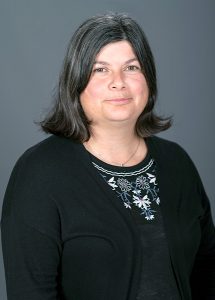
Dr. Katerina Spasovska, Associate Professor of Communication
On stepping down as department head, Spasovska said, “I loved serving the department as a chair, but I am also happy to go back to regular teaching and having more time to work with students and my research.”
Spasovska is looking forward to working with students on projects and more time to devote to the classes. She said, “I am also hoping to pick up and do some more writing and reporting on my own and spend some more quality time with my family.”
In addition to these internal changes within the department, Russell and Binford will begin working with the department and students this semester.
Russell was hired into the faculty line that was left vacant after Dr. Jim Manning’s retirement during the Spring 2021 semester.
Eldredge said, “We hired Vincent for his expertise in Intercultural Communication and the experience he brings in using communication to support social justice efforts and initiatives.”
Binford was hired into the faculty classification as Assistant Professor of Practice. The focus of his position is on managing and maintaining the department’s TV studio, cameras and other equipment. He will also be working with faculty in the department to help with classes and develop ideas to maximize the use of the TV studio by students and the university.
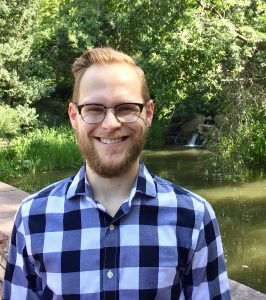
Vincent Russell, Assistant Professor, Coordinator of Communication Department Liberal Studies Program
_____
Vincent Russell is an Associate Professor of Communication at Western and will also serve as Coordinator of the Communication Department Liberal Studies Program.
Russell received his bachelor’s degree in Communication Studies from the University of North Carolina Greensboro in 2011. In 2017, he graduated from UNCG with a master’s degree in Communication Studies. Finally, in 2021, Russell obtained his Ph.D. in Communication from the University of Colorado Boulder.
Russell will be teaching courses in the human communication area, primarily intercultural communication (COMM 415: Intercultural Communication) and the liberal studies communication course (COMM 201: Foundations of Communication).
In addition to teaching, Russell will act as a liaison between the Communication Department and the Liberal Studies office at Western. He will assist with the approval and assessment of COMM courses listed in the Liberal Studies curriculum and oversee COMM 201 instructors through this role.
When it comes to teaching, Russell specializes in communication activism pedology.
Russell said, “I provide students with opportunities to develop democratic habits and skills necessary to engage in civic affairs. In my courses, students develop a critical consciousness and hone their communication skills so that they can work to advance social justice.”
A typical day in Russell’s classroom is a mix between fun and fundamental learning and listening:
“I usually start … with some music, and class starts with 5–10 minutes for students to share and talk about whatever they want. They … share good news from their lives or upcoming campus/community events. We then move into the content for the day, with students typically engaging in … group activity or discussion. The rest of class is usually filled with thoughtful questions, discussions about how students can apply what they’re learning in their lives, and laughter,” explained Russell.
Russell’s research emphasizes “communication activism for social justice scholarship,” which involves communication scholars intervening collaboratively to aid marginalized individuals, activist groups, and community-based organizations to obtain social justice and explores deliberation practices and processes engaged in by people pursuing collective action.
Some of Russell’s accomplishments include:
– Authoring eight peer-reviewed journal articles and four chapters in edited scholarly books
Receiving 12 awards and honors, including:
– Teaching Excellence Award from the University of Colorado Boulder
– Top Student Paper Award from the Public Dialogue and Deliberation Division from the National Communication Association
– Rozell Duncan Award for Excellence in Experiential Learning Research
– Participation (selected competitively) in the 2020 Doctoral Honors Seminar
Russell believes his teaching at research will fit right in with the Communication Department at Western, and he is excited to work with and learn from other faculty in the department.
He said, “I’m inspired by this department’s commitment to and experience with community engagement, service-learning, and experiential learning. The faculty are devoted to high-quality undergraduate education, in part by ensuring that what students learn is applicable to their professional and personal lives.”
Another reason Russell chose to teach at Western is because of its “spectacular location.”
“There was no way I would pass on the opportunity to live and work in this beautiful region with such a unique history and culture. Plus, I can’t wait to see WCU’s marching band in action,” said Russell.
Outside of teaching, Russell enjoys hiking, camping and playing drums. Before pursuing his academic career, Russell was a professional drummer in a progressive rock band.
“Rhythm and music remain life-sustaining passions of mine,” said Russell.
_______

Matthew Binford, Assistant Professor of Practice for Communication and Broadcasting at Western
Matthew Binford is an Assistant Professor of Practice for Communication and Broadcasting at Western.
Binford received his bachelor’s degree in Electronic Media Production from Middle Tennessee State University in 2013. Binford also received his master’s degree from MTSU in Mass Communication 2015. Binford will soon complete his dissertation to receive a Ph.D. in Mass Communication from the University of Georgia.
Binford has extensive experience in the video production field, start from age 16. After recording sporting events, school plays and school assemblies for his school district in high school, Binford got his undergraduate degree at MTSU in Electronic Media Production to pursue a full-time career in video production.
After graduating, Binford worked in video production for award shows such as the CMT Awards and Latin Grammys. He also did video work for touring artists, including Sara Bareilles, Weird Al Yankovic and Twenty-One Pilots.
During this time, Binford decided he wanted to pursue a master’s degree in communication after realizing he did not want to be on the road forever.
He explained, “I loved touring, and it allowed me to see the world on someone else’s dime, which is always nice, but I knew it was not what I wanted to do forever.”
Binford is excited to start working at Western Carolina University in a position that “not only wants me to keep working in live video production in the WCU TV studio, but also one where I can teach and do research.”
One thing Binford believes makes him unique as an educator is his background in both academia and the professional world.
He said, “I hope to be able to use this experience to make me a better educator. I also care about my students and am empathetic to the fact that being a student is a stressful full-time job all in itself.”
Binford’s classroom is a bit unlike most, as it is heavily focused on experiential learning, where students gain hands-on experience with equipment.
He said, “I try to foster a fun environment that students will look forward to in the hopes that it will not only help them learn the material, but also encourage them to be creative and consider this as a career.”
This semester, Binford will be working with students in the television studio to help them learn how to use the camera and video equipment.
While Binford is not teaching any classes this upcoming semester, he may have the opportunity to co-teach a broadcast news journalism course next semester. In the past, Binford has taught introductory media writing courses, news writing courses and video news journalism courses.
Binford has an interest in researching news credibility and political communication on social media. Binford also said, “I have an expertise in using eye-tracking as a methodology particularly to study how design elements impact visual attention.”
Outside of teaching, Binford enjoys hiking and is passionate about social justice issues and local journalism. He also considers himself “generally outdoorsy” and is excited to be in the North Carolina mountains.
